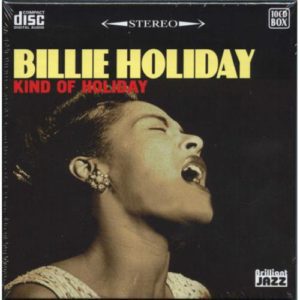What is Jazz music?
Jazz was developed from ragtime and blues and is characterized by improvisation, the use of original timbres, and syncopated rhythms. Jazz emerged in the early 20th century and contains several sub-categories. These include traditional jazz, swing, bebop, cool jazz, and hard bop, to name a few.

Traditional jazz typically includes instruments like violins, clarinets, drums, and trombones. Swing jazz is characterized as faster paced music that allows for high energy dancing. Bebop is similar to swing, however it focuses on harmonies and melodies as the center of its form. Cool jazz is more mellow and is characterized by smoother tempos and has heavy use of the saxophone. Hard bop is heavily drum based and includes a soulful pitch that resembles gospel music types.
Billie Holiday’s Legacy of Activism through Jazz Music
Billie Holiday was born Eleanora Fagan on April 7, 1915. She was an American jazz and swing music singer. She was nicknamed “Lady Day” by Lester Young. Her vocal style was strongly inspired by jazz instrumentalists and it pioneered a new way of manipulating phrasing and tempo. Her improvisational skills were innovative in the genre.

Holiday showed a strong sense of activism and sense of personal identity as a Black woman with the recording of the song “Strange Fruit”. This song was based off of a poem written by Abel Meeropol who was a Jewish school teacher in the Bronx, New York. The poem was based off of the lynchings of African Americans. Despite fearing retaliation from performing the song, Holiday performed at an integrated club and asserted her perspective as a Black female artists. To include topics of racial injustice in her Jazz artistry, Holiday placed her activism on display and created a strong legacy for Black women to stand firm in their identity in the genre of Jazz music. Holiday is known for her troubled life and has a documented troubled childhood, stint in prison, and drug and alcohol abuse. Despite her many challenges, one of her career highlights includes performing at a sold-out Carnegie Hall. She was also inducted into the National Rhythm and Blues Hall of Fame and the Grammy Hall of Fame. Her four grammy awards, for Best Historical Album, was awarded posthumously.

It can be argued that Holiday did not receive her flowers while living, however her unique contribution to Jazz music can never be denied. She is widely regarded as one of the most influential Jazz artists, and her contributions to Jazz music provided a clear sense into life as a Black woman and fearlessly used a popular genre to protest the racial injustices faced by African Americans.
References


